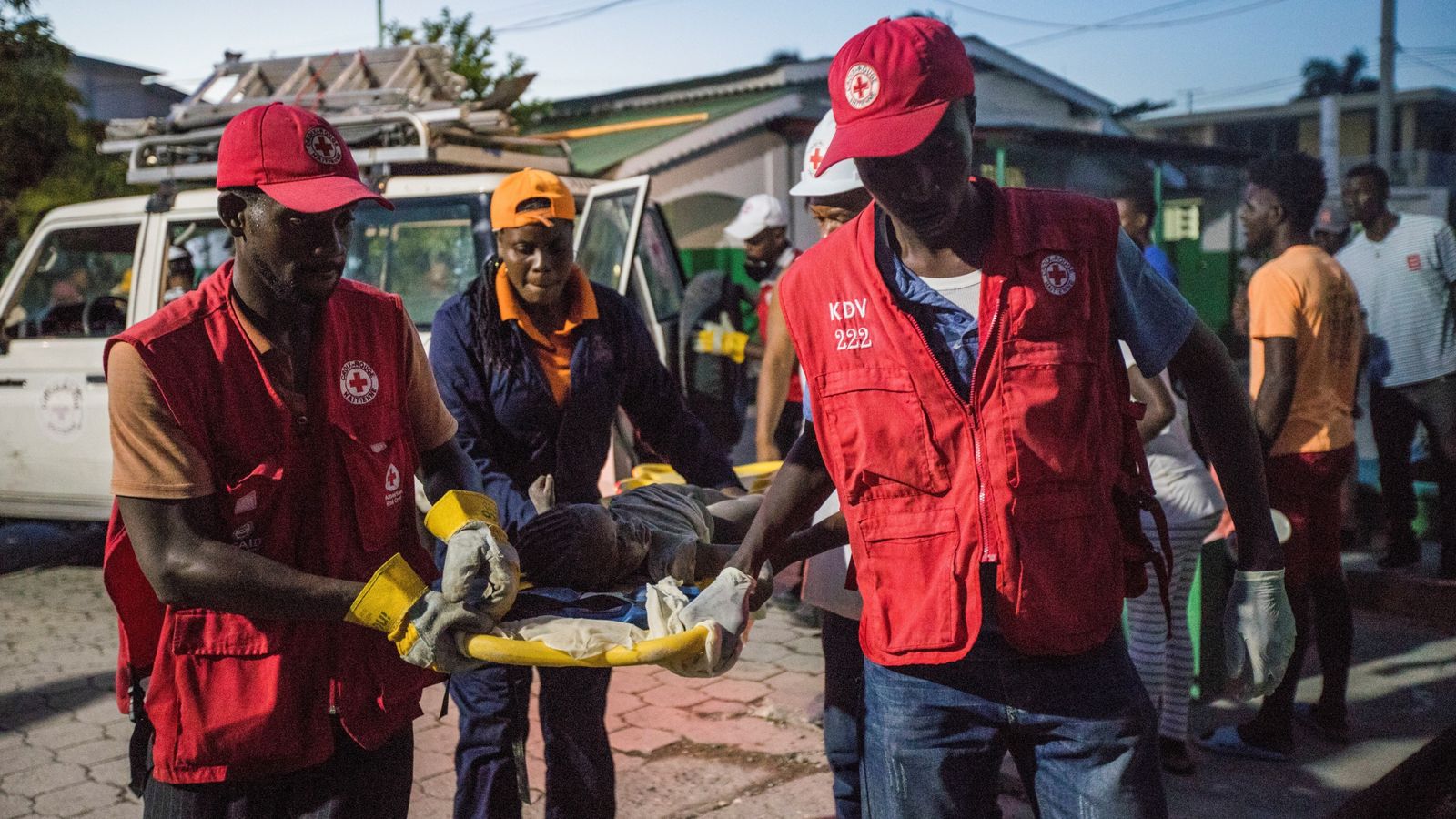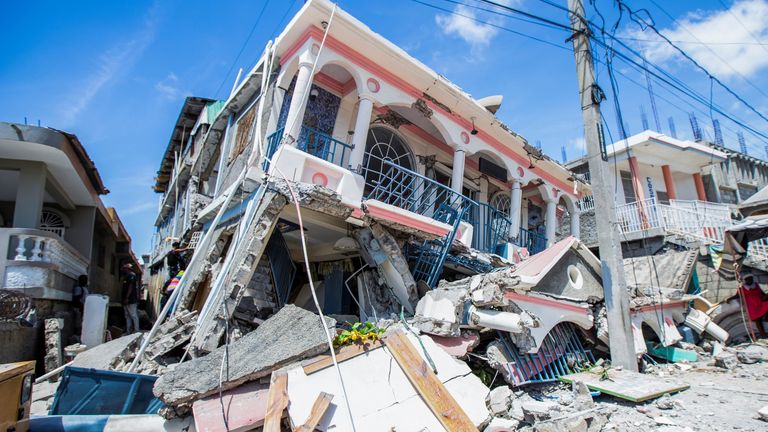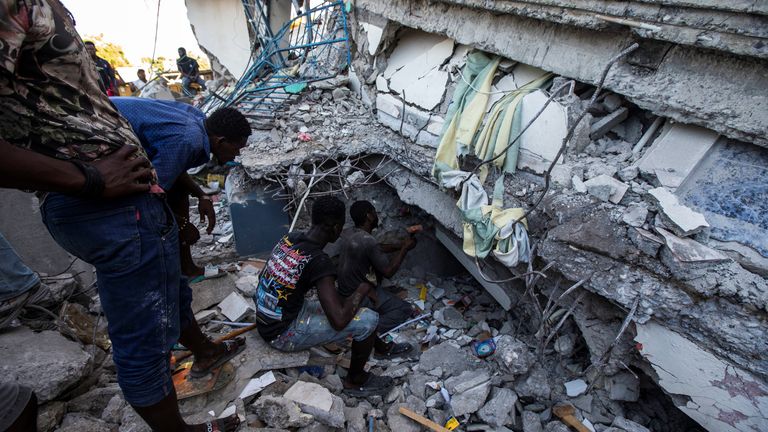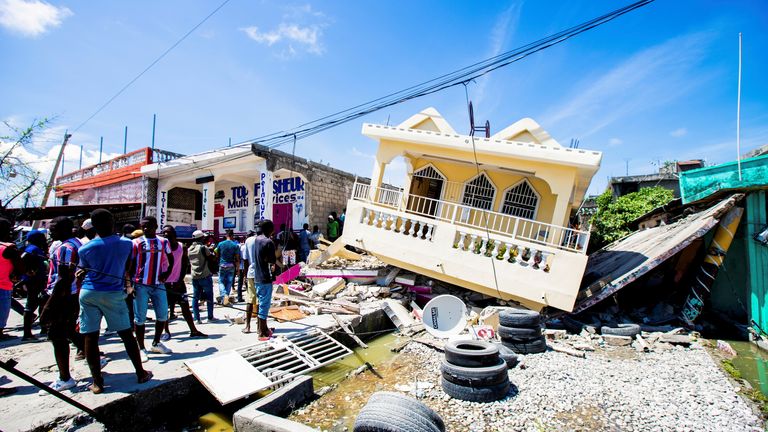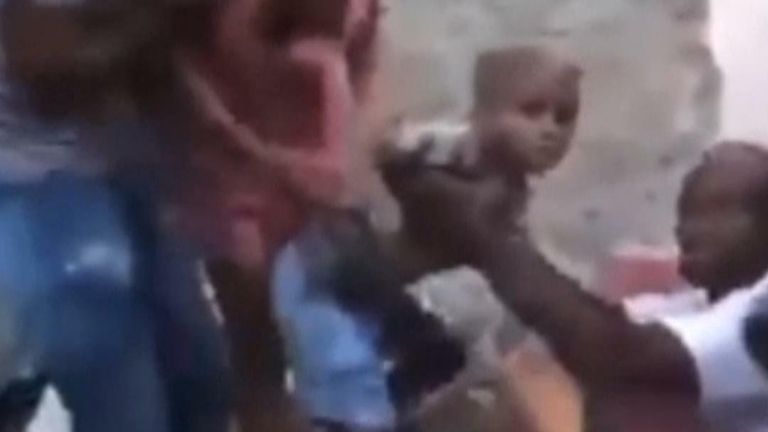Hospitals in Haiti have become overwhelmed as they treat thousands of people injured in a earthquake that has left 1,297 dead.
Some 13,694 houses have been destroyed, Haiti’s civil protection agency said, suggesting the number of dead could rise further.
Saturday’s 7.2 magnitude quake has left at least 5,700 people injured in the Caribbean nation, with thousands more displaced from their destroyed or damaged homes.
Authorities have been racing to bring doctors to the worst-hit areas before a major storm hits.
Rescue workers have been searching frantically to find survivors, and footage on social media shows civilians pulling distraught people from the debris of walls and roofs that had crumbled around them.
The epicentre of the quake was around 78 miles west of the capital of Port-au-Prince, the US Geological Survey said, and aftershocks continued to jolt the area on Sunday.
Schools, hospitals, hotels and churches have all been badly damaged and destroyed, while the walls of a prison were smashed open by the violent shudders.
The civil protection agency has said the hospitals that were still functioning are struggling to cope with the thousands of people who are injured.
Jerry Chandler, the head of Haiti’s civil protection agency, said: “We do have a serious issue.
“There are very important facilities that are dysfunctional as we speak and those that are functional are receiving an overflow of patients.”
Reports of overwhelmed hospitals come as the nation struggles to deal with the coronavirus pandemic. The 11-million strong country received its first batch of US-donated COVID-19 vaccines last month.
In the northwestern city of Jeremie doctors treated injured patients on hospital stretchers underneath trees and on mattresses by the side of the road, as healthcare centres have run out of space.
In Les Cayes, a seafront town of some 90,000 people, rescuers in red hard hats and blue overalls pulled bodies from
the tangled wreckage of one building, as a yellow mechanical excavator nearby helped to shift the rubble.
Aftershocks could be felt throughout the day and night, with the island experiencing six stronger than magnitude 5 and more above 4 by early Sunday.
“We need to show a lot of solidarity with the emergency,” Haiti’s Prime Minister Ariel Henry said.
He said aid was being rushed to areas where towns were destroyed and hospitals overwhelmed with patients.
The prime minister declared a one-month state of emergency for the whole country.
“The most important thing is to recover as many survivors as possible under the rubble,” said Mr Henry.
“We have learned that the local hospitals, in particular that of Les Cayes, are overwhelmed with wounded, fractured people.”
Rescue efforts will be frustrated by the arrival of Tropical Storm Grace, which is set to lash the island nation with heavy rainfall on Monday.
The US National Hurricane Center also warned of the possibility of flash flooding.
Nearby countries, including the Dominican Republic and Mexico, rushed to send desperately needed food and medicines by air and across Haiti’s land border.
The United States dispatched vital supplies and deployed a 65-person urban search-and-rescue team with specialized
equipment, said Samantha Power, the administrator of the United States Agency for International Development (USAID).
Haiti is still rebuilding from a previous major quake 11 years ago and was recovering from the assassination of President Jovenel Moise in July.
US President Joe Biden has authorised an immediate response and named USAID administrator Samantha Power to oversee the US relief effort.
Ms Power said the US has sent vital supplies and deployed a 65-person urban search-and-rescue team with specialised equipment.
Mr Biden said USAID would help to assess damage and assist in rebuilding and called the US a “close and enduring friend to the people of Haiti.”
Argentina and Chile have also said they will send help.
Some Haitians who remember the aftermath of the earthquake that struck in 2010 spent Saturday night sleeping in the streets.
That tremor struck closer to the capital, Port-au-Prince, and killed up to 300,000 people.
